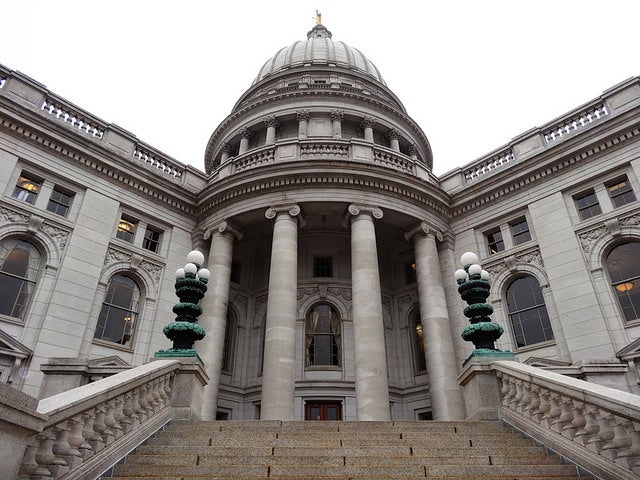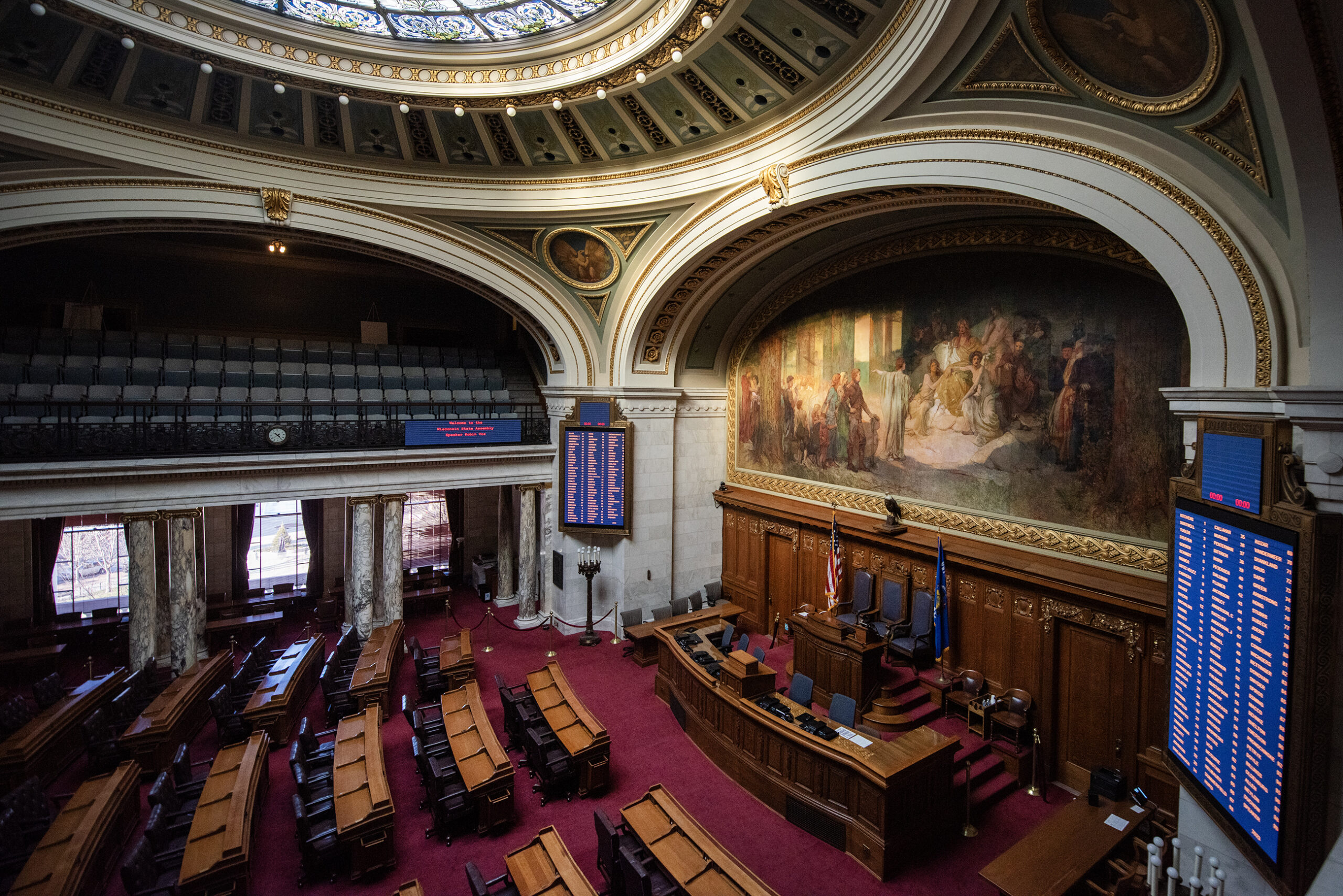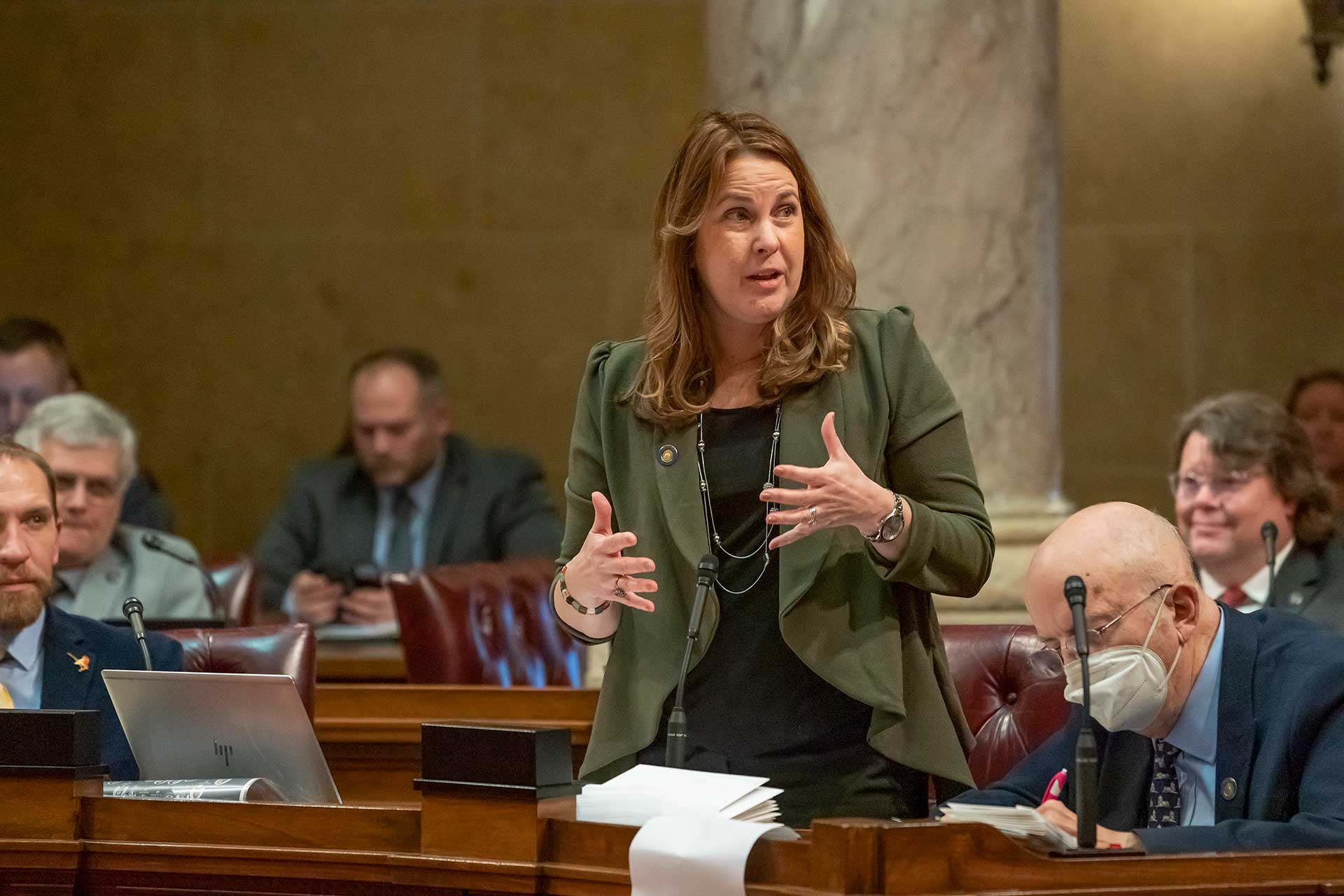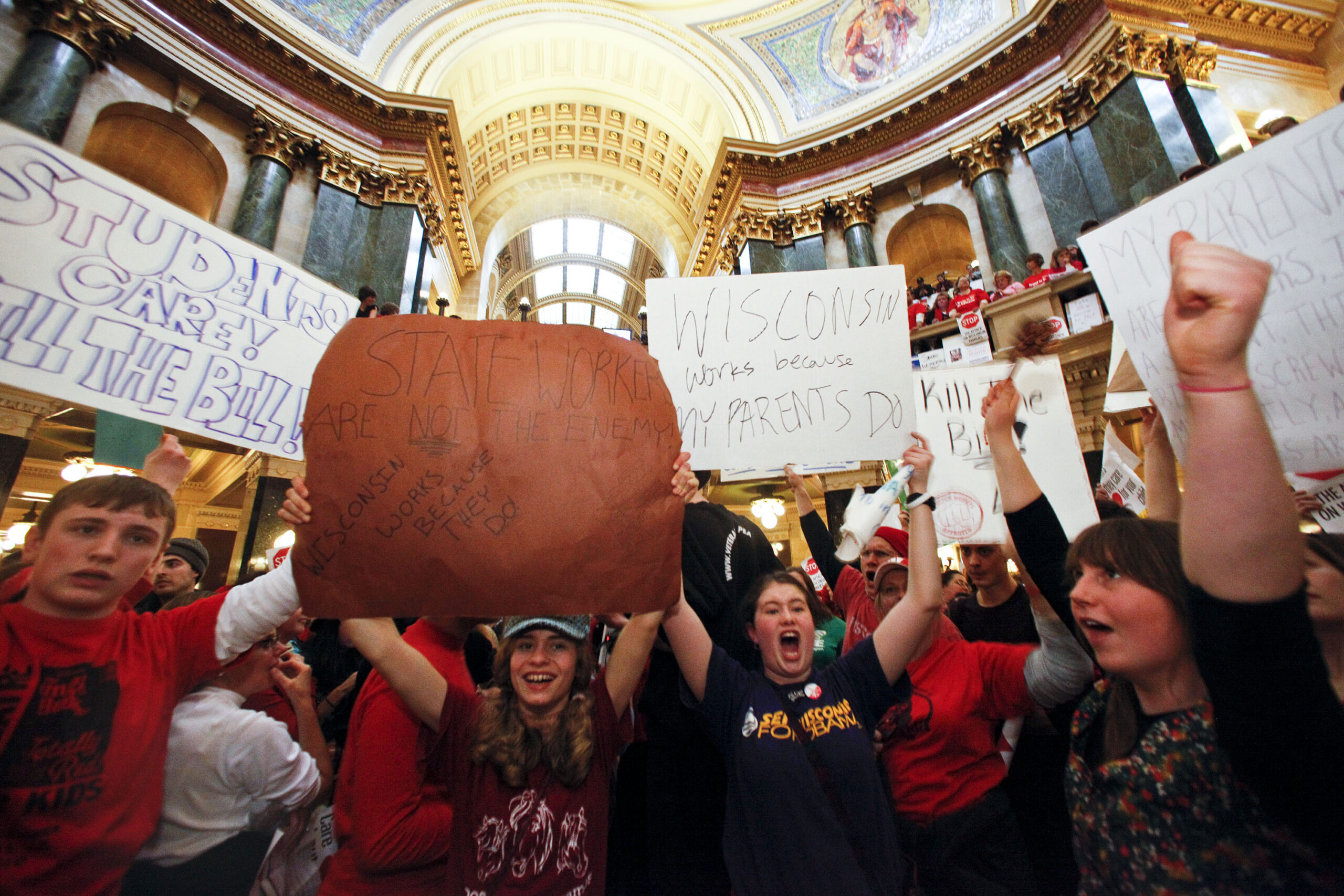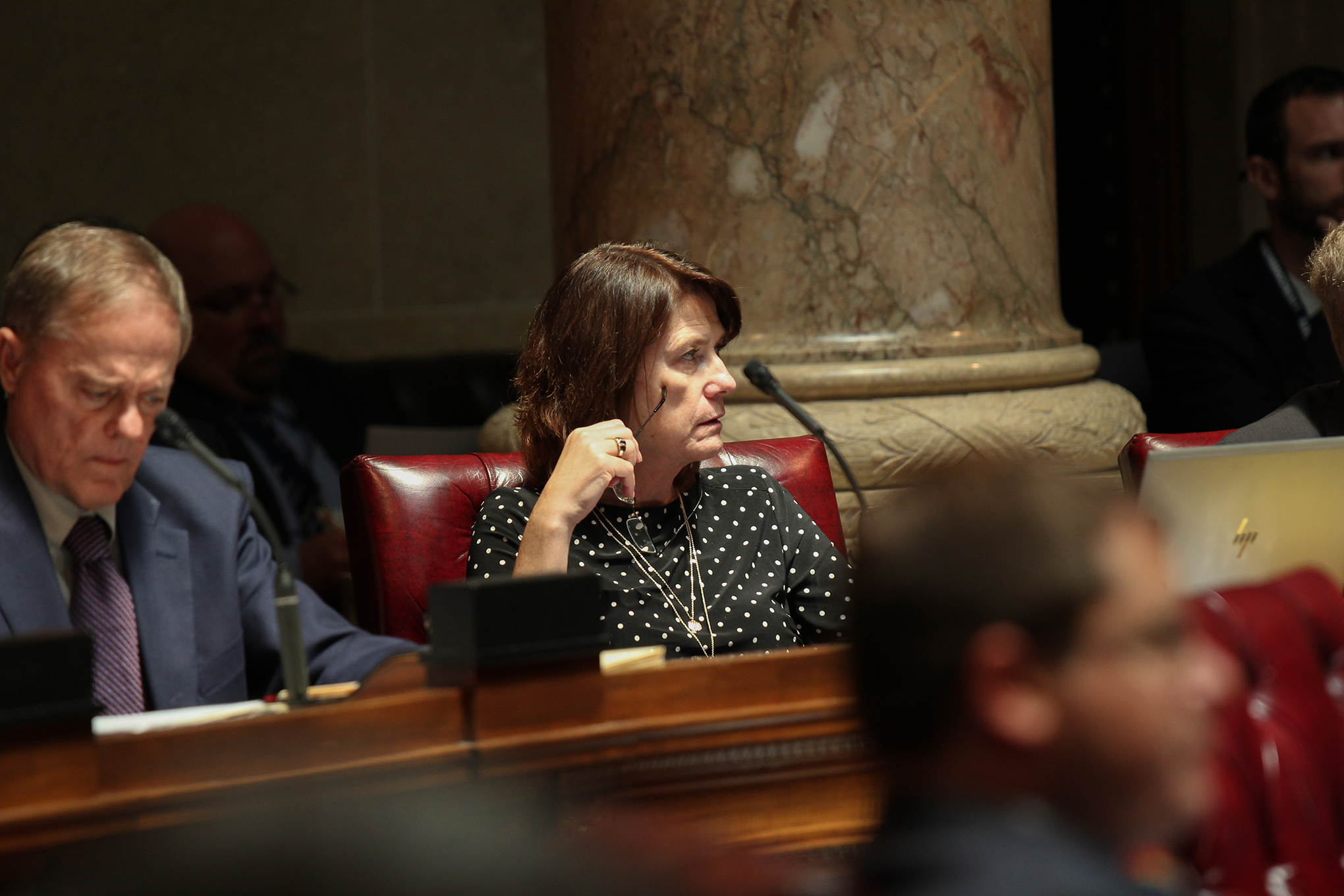The state Senate returned to Madison for its final votes of the year on Tuesday and took action on a number of legislative items before adjourning late into the night.
Lawmakers were at the state Capitol to look at more than 80 bills, including plans to allow online voter registration and amnesty from underage drinking tickets for victims of sexual assault. With few exceptions, these bills that got approval are heading to Gov. Scott Walker’s desk.
There were also some major bills that didn’t end up on the calendar, meaning they’re likely dead this legislative session.
Stay informed on the latest news
Sign up for WPR’s email newsletter.
Here’s a rundown of what passed and what seems to have been passed over.
Bills That Passed
Opioid package
A package of four bills sponsored by Marinette Republican Rep. John Nygren will fund treatment and diversion programs, create criminal penalties for using certain masking agents during drug testing, and change regulation of some opioid treatment programs.
Online voter registration
Update: After getting Senate approval Tuesday, Gov. Scott Walker signed the measure into law Wednesday morning.
Under the plan, any eligible voter with a state-issued driver’s license or ID card will be able to register online to vote, starting in the spring 2017 primary election. The bill has gotten heat from opponents because it also eliminates officials called special registration deputies. That change, opponents say, will effectively end voter registration drives in Wisconsin.
School revenue limits
The bill will change how schools use property tax increases to offset cuts caused by the state’s expanded school voucher system. The bill has been significantly changed since it was introduced — an earlier version concerned school administrators, who said it would cost them millions.
High-capacity wells
Despite getting Senate approval on Tuesday night, a bill to loosen regulation of high-capacity wells in Wisconsin is effectively dead.
The bill passed the Senate on a party-line vote. However, because the bill hasn’t yet passed the Assembly, it’s unlikely to go to Walker’s desk this year.
For more, read here.
Barring plastic bag bans
Under this plan, local governments will be disallowed from banning certain containers, including plastic bags. Proponents of the bill say such bans — which dozens of communities across the U.S. have implemented for environmental reasons — result in increased costs that eventually are passed on to consumers.
(Most of) Walker’s college affordability package
Four bills in Walker’s college affordability package passed the Senate on Tuesday, but legislators didn’t vote on the centerpiece of the governor’s highly-touted agenda.
The bills that passed will fund need-based and emergency grants for technical college students and internship coordinator positions in the state Department of Workforce Development, and require schools to provide students annual updates on loan balances.
A fifth part of the governor’s plan, which he has championed for months, wasn’t included on the Senate calendar. That proposal would have lifted a cap on student loan interest deductions.
More info here.
Alzheimer’s/dementia package
Only three of several bills passed by the Assembly last month to address Alzheimer’s and dementia care in Wisconsin were scheduled for Senate votes. The bills require the Department of Health Services to draft a proposal for a dementia crisis unit pilot program, provide a $1 million funding increase for the Alzheimer’s Family and Caregiver Support Program and require the Department of Health Services to award $250,000 grants to counties for training mobile crisis teams.
Underage drinking amnesty
Under the bill, victims of sexual assault couldn’t be ticketed for underage drinking. It also lets bystanders who help an assault victim get an exemption from a citation. Proponents hope the plan will remove a major barrier to reporting sexual assaults.
Ignition Interlocks
The proposal allows individuals convicted of drunken driving to forgo having an ignition interlock device installed in their car, if they agree to participate in a 24/7 sobriety program. Advocates say they expect the measure could boost participation in such programs.
Bills Not On The Agenda
Walker college affordability tax deduction
The plan, which is estimated to cost about $5 million, would lift the state’s $2,500 cap on student loan interest deductions. Senate Majority Leader Scott Fitzgerald told a Madison TV station on Friday the bill’s cost might cause it to be passed over for a vote.
Harsher penalties for unemployment insurance fraud
Under the bill, people who are convicted of unemployment insurance fraud would face penalties ranging from a fine to imprisonment and a felony.
“Right to rent”
The bill would limit local governments’ ability to regulate vacation rentals, like those operated through websites like Airbnb or Vacation Rental By Owner.
Administrative rules changes
The proposal, which has been championed by Walker, would change how state agencies write administrative rules, which have the force of law. Rules that with a projected cost of at least $10 million would be subject to different procedures.
Sanctuary cities
The bill would withhold funding from so-called “sanctuary cities” for undocumented immigrants. Thousands came to the Capitol in February to protest the bill.
Wrongful convictions
Under the proposal, the state would pay more to individuals who were wrongfully convicted of crimes.
Wisconsin Public Radio, © Copyright 2025, Board of Regents of the University of Wisconsin System and Wisconsin Educational Communications Board.
